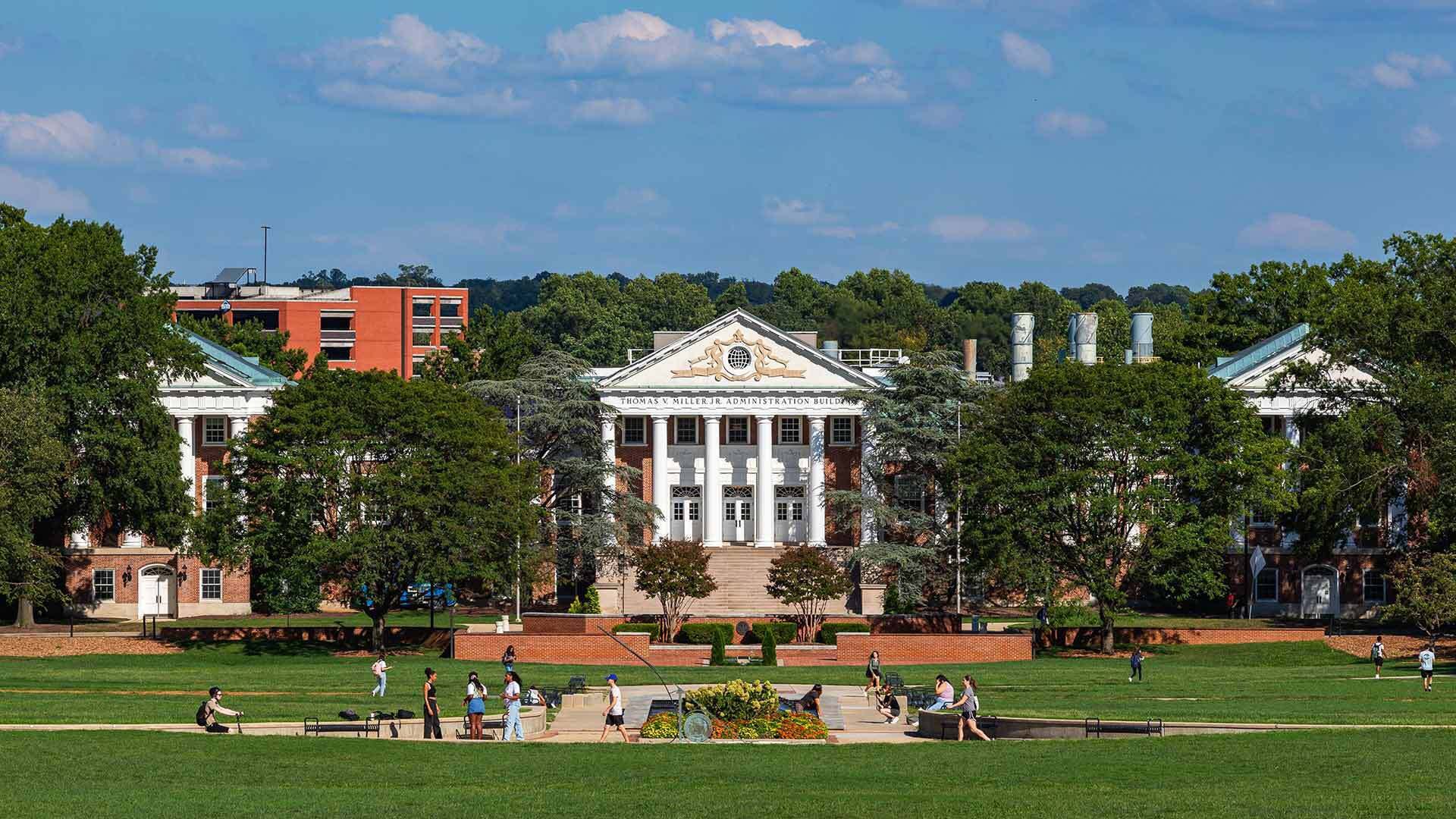- September 24, 2023
- By Maryland Today Staff
Many parts of the U.S. government will shut down on Oct. 1 unless Congress passes annual appropriation bills or other funding measures to keep the lights on and the bills paid.
Besides delaying paychecks to millions of federal employees and forcing operational cuts at a spectrum of agencies, the potential federal funding gap could have a variety of impacts on the University of Maryland community, from research to federal services for international students.
Below are some frequently asked questions. The university will update the answers as federal agencies continue to release more guidance to the public.
In addition, the U.S. Office of Management and Budget will compile a list of agency-by-agency guidance in the event of a government shutdown.
What is the impact on federally funded research projects?
Generally, a government shutdown will have little immediate impact on the ability of ongoing federally funded research to continue. Researchers may proceed as normal unless notified otherwise by the UMD Office of Research or their federal sponsor.
During a shutdown, federal agencies will be prohibited from issuing new grants, contracts, amendments, continued funding increments, supplements or no-cost time extensions requiring explicit prior federal awarding agency approval.
Most federal agency staff will not be working. Inquiries about upcoming deadlines, applications or actions requiring prior approval will likely go unanswered until the shutdown is resolved.
Principal investigators should submit proposals by the deadline set by the federal awarding agency unless notified otherwise. However, the proposal review process will be delayed. They should continue to meet all deadlines set forth in their awards and should be able to submit annual and final project reports and Project Outcomes Reports via Research.gov.
Once the shutdown ends, there will be delays as the federal government resumes operations.
UMD employees who will be most directly impacted are those with ties to a federal agency or federal employees. For example: cooperative agreements with a federal research partner; students receiving direct stipends from the federal government under training grants; and projects or employees who are working on-site at a federal facility.
Email research administration questions to Wendy Montgomery, assistant vice president for the Office of Research Administration, at wmont@umd.edu.
What is the effect on federal financial aid?
Federal student aid should not be affected by a government shutdown since it is dispersed at the beginning of the semester. Additionally, because most aid programs are funded by Congress a year in advance, they should not be impacted by a short-term agency stoppage.
The Department of Education and the Office of Federal Student Aid use contractors for most student-aid operations, which should minimize disruptions. Borrowers looking for assistance specifically from the Department of Education will not receive it during a shutdown. Additionally, students applying for funding from the department, whether loans or loan forgiveness, could experience delays.
The department is working on rolling out a simplified Free Application for Federal Student Aid (FAFSA) form, expected to be released in December 2023. A government shutdown could delay the release of that form and impact eligibility determination for student aid programs.
Email student aid questions to UMDfinaid@umd.edu.
What is the impact on veterans’ education benefits and services?
GI Bill benefits for student veterans currently enrolled and certified should not be affected by a short-term government shutdown. Student veterans seeking to obtain their GI Bill benefits during or shortly after a shutdown may experience delays. As with other federal agencies, some Department of Veterans Affairs employees may be furloughed, and questions and requests for assistance from agency employees may go unanswered until the shutdown is resolved.
For veterans benefit questions, call 301.314.8239 or email vabenefits@umd.edu.
What does it mean for immigration services to international students, faculty and staff at UMD?
Because many of the federal agencies that oversee immigration services are funded by fees, they often remain open during a government shutdown. This includes the U.S. Citizenship and Immigration Services (USCIS) and the Department of State (including embassies and consular services).
While USCIS will usually continue to process H-1B, O-1, E3, TN, F-1 OPT and permanent residency applications, H-1B and E-3 applications may be delayed if the Department of Labor is closed during a government shutdown. That department issues Prevailing Wage Determinations and certifies Labor Condition Applications and PERM applications. These applications are required for filing H-1B, E-3 and some permanent residency cases with USCIS. A shutdown may mean that the Department of Labor will neither accept nor process pending applications.
Customs and Border Protection: During past government shutdowns, services at ports of entry by air and land continued as usual, including the electronic I-94 process.
For immigration services questions, email Connie Jessie, assistant director of faculty/scholar immigration, at cjl@umd.edu, or Mimi Lemma, international scholar and faculty adviser, at ylemma@umd.edu.
What happens to student internships with federal agencies?
Students should contact their supervisor to determine how their work is affected by the shutdown. Students should also contact their internship coordinator at UMD to determine any effects on credits being earned.
What happens to faculty and staff working at federal agencies through the Intergovernmental Personnel Act (IPA)?
Faculty
and staff serving on appointments at federal agencies through the IPA
may be exempt from a furlough during a government shutdown and should
reach out to their federal point of contact for additional guidance.
Topics
Campus & Community